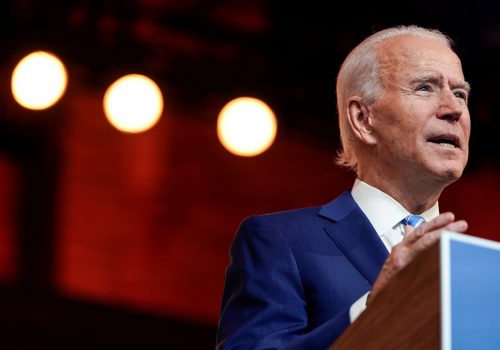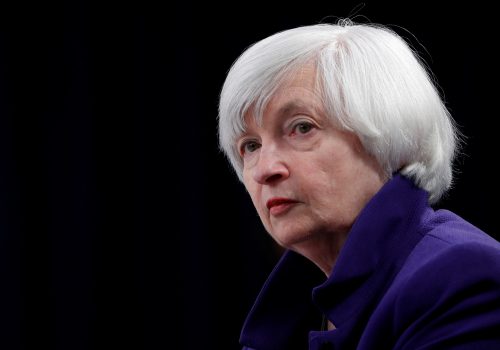FAST THINKING: Biden’s $1.9 trillion message to Congress
JUST IN
Now we know how Joe Biden wants to start his presidency next week: with a financial bang. He is unveiling a nearly two trillion dollar package today aimed at beating back the pandemic and economic crisis. What’s the key thing to know?
TODAY’S EXPERT REACTION COURTESY OF
- Josh Lipsky (@joshualipsky): Director of programs and policy at the GeoEconomics Center
Bipartisanship—with a catch
- Josh sees this as a move to fulfill Biden’s campaign promise of bipartisanship, but one that also takes the new power dynamic in Congress into account. “What’s most interesting to me is the way he’s signaled he wants to do this: through a bipartisan rather than straight party-line vote,” he tells us, meaning Biden thinks he can get close to a dozen Republicans on board with the bill.
- The plan commits over a trillion dollars directly to American pockets through $1,400 checks and enhanced unemployment benefits. But that’s only half the proposal. The other trillion goes to speed up vaccinations, pay for an increased child-tax credit, raise the minimum wage to fifteen dollars an hour, and help states struggling to meet budget shortfalls. So it’s very possible that Republicans will balk at the price tag.
- Biden’s team, Josh notes, debated putting items in the proposal that were high on the left’s list of demands—automatic stabilizers, which ensure government spending continues to flow if unemployment remains high, and “baby bonds,” which create a savings account for every American at birth—but ended up deciding to save that for another day.
- The end result is the proverbial iron fist in a velvet glove. “This is basically Biden saying to Republicans, ‘This is our chance to work together on the recovery,’” Josh says. “‘But the subtle part of the message is that he could propose an even bigger plan with just Democratic votes if this doesn’t work.’”
- If the gambit succeeds, he adds, it will be another major leap forward in US economic policy: “If this passes, the United States will have spent over 20 percent of its GDP on stimulus, as opposed to the six percent it spent during the Great Recession.” That means the United States will have spent more money on a fiscal recovery than any other advanced economy.
Further reading
Tue, Jan 5, 2021
Tracking the COVID-19 economy
EconoGraphics By Nitya Biyani
Key economic indicators for Japan, UK, European Union, and the United States.
Mon, Nov 30, 2020
FAST THINKING: A speed read on Team Bidenomics
Fast Thinking By
Joe Biden has selected a slate of economic advisers that just might please his party while also (mostly) surviving confirmation in a potentially Republican-controlled Senate.
Mon, Nov 23, 2020
FAST THINKING: It’s Yellen for Treasury
Fast Thinking By
Janet Yellen could face an economy devastated by the coronavirus and the haphazard response to it in Washington. Josh Lipsky provides insight into how she might manage a difficult recovery.
Image: US President-elect Joe Biden delivers remarks on the US response to the coronavirus disease (COVID-19) outbreak, at his transition headquarters in Wilmington, Delaware. REUTERS/Jonathan Ernst/File Photo


